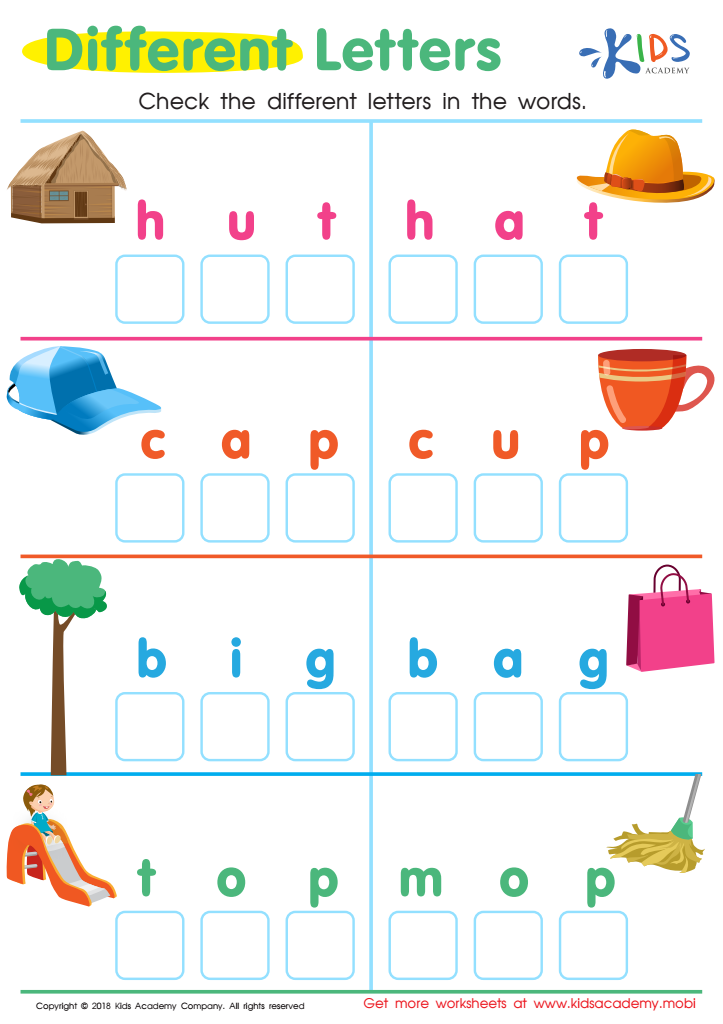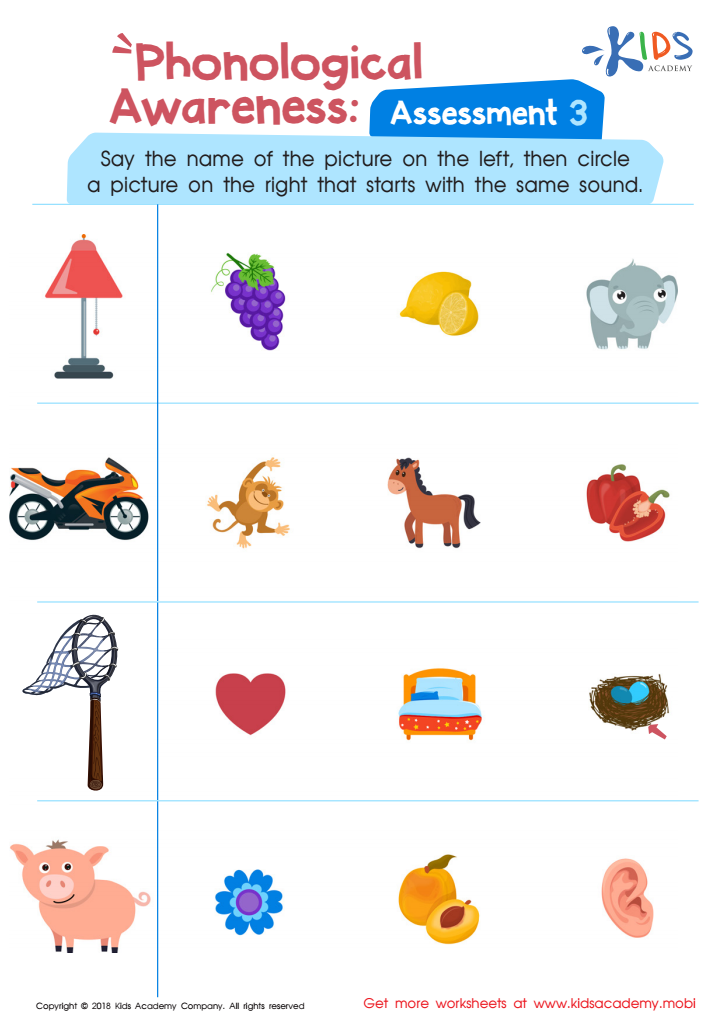Letter recognition Elementary Phonics Worksheets for Ages 4-6
5 filtered results
-
From - To
Introduce your young learners to the world of letters with our "Letter Recognition Elementary Phonics Worksheets for Ages 4-6." Designed to develop essential reading skills, these worksheets make learning fun and engaging. Children will explore letter shapes, sounds, and alphabetical order through colorful and interactive activities. Our expertly crafted resources cater to various learning styles, ensuring each child grasps foundational phonics concepts effectively. Perfect for preschool and kindergarten students, these worksheets help build confidence and set the stage for future reading success. Foster a love for reading early on with our age-appropriate, educator-approved resources. Start exploring today!


Long and Short U Worksheet


Different Letters Reading Worksheet


Phonological Awareness: Assessment 3 Worksheet


Long and Short E Worksheet


Phonological Awareness: Assessment 1 Worksheet
Parents and teachers should prioritize letter recognition and elementary phonics for children aged 4-6 because these foundational skills are critical for early literacy development. At this age, children are in a prime developmental stage for absorbing the basics of reading and writing. Learning to recognize letters is the first step in understanding that letters represent sounds, and these sounds form words, which are the building blocks of language. As children become proficient in letter recognition, they can begin to associate letters with their corresponding sounds, a process known as phonics.
Phonics instruction helps children decode words, improving their reading fluency and comprehension. When children can effortlessly recognize letters and sounds, they are more likely to develop a love for reading, which can significantly influence their academic success in later years. Moreover, early proficiency in reading skills boosts confidence and fosters a positive self-image, encouraging them to engage with texts more eagerly.
Apart from academic benefits, letter recognition and phonics instruction enhance cognitive abilities like memory, attention, and critical thinking. They also support communication skills by expanding vocabulary and helping children express themselves more effectively. Therefore, ensuring children develop strong letter recognition and phonics skills sets a robust foundation for lifelong learning and literacy.
 Assign to My Students
Assign to My Students










